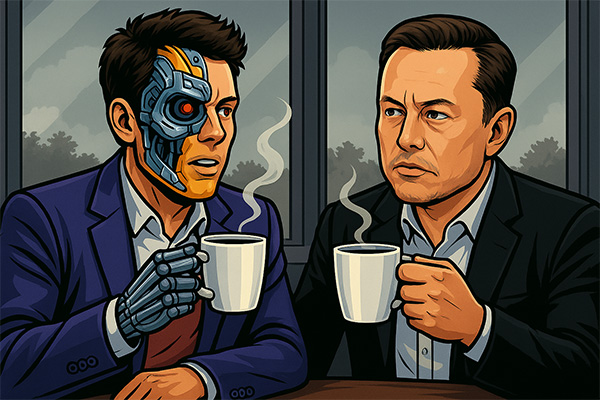
🧠 OpenAI Eyes Brain-Computer Interface Startup to Rival Neuralink
San Francisco, CA — Sam Altman’s OpenAI is reportedly preparing to invest in a brain-computer interface (BCI) startup designed to compete directly with Elon Musk’s Neuralink, according to sources familiar with the matter. The move could signal a significant new frontier for the AI research lab, potentially merging artificial intelligence with cutting-edge neuroscience.
Background: The Rise of Brain-Computer Interfaces
Brain-computer interfaces, once relegated to the realm of science fiction, are now a rapidly growing field. BCIs aim to establish direct communication pathways between the human brain and computers, enabling everything from restoring lost mobility to enhancing cognitive abilities. In recent years, Neuralink has dominated headlines, but a wave of startups — including Synchron, Paradromics, and Kernel — have emerged as credible players.
OpenAI’s potential entry into this space would not only escalate competition but also accelerate innovation in neural technology, bringing AI closer to real-time interaction with human thought processes.
OpenAI’s Strategic Move
While OpenAI has traditionally focused on large language models and AI research, CEO Sam Altman has shown interest in “human-AI symbiosis” — the seamless integration of artificial intelligence into daily life. Funding a BCI startup aligns with this vision, offering the potential to enhance human capabilities and democratize access to advanced cognitive tools.
- 💡 Possible seed investment in early-stage BCI technology firms
- 🤝 Partnerships with neuroscience research institutions
- 🔬 Leveraging AI expertise to process neural signals
How It Compares to Neuralink
Neuralink, founded by Elon Musk in 2016, has made waves with its implantable devices designed to read and stimulate brain activity. However, its focus on invasive surgical procedures has sparked debate. OpenAI’s potential rival could opt for a less invasive approach, using wearable headsets, non-invasive imaging, or advanced signal processing to achieve similar results.
The Technology Behind OpenAI’s BCI
Although details remain under wraps, experts speculate that OpenAI’s approach would combine high-resolution neural data collection with AI models capable of decoding complex brain patterns. This synergy could pave the way for:
- 🗣️ Thought-to-text communication
- 🎮 Mind-controlled gaming and VR experiences
- 🧬 Cognitive enhancement tools for education and research
- 🏥 Medical rehabilitation for stroke or spinal injury patients
Market and Industry Impact
The global BCI market, valued at over $2 billion in 2024, is projected to grow at a CAGR of 15% through 2030. An OpenAI-backed entrant could shift market dynamics dramatically, attracting tech investors, medical researchers, and consumer technology giants eager to integrate brain-driven applications into their products.
Ethical and Privacy Concerns
BCIs raise profound ethical questions. Who owns neural data? How do we protect privacy when thoughts can be decoded? Critics warn of the potential for misuse in surveillance, advertising, or even criminal profiling. OpenAI, known for its AI safety initiatives, will face intense scrutiny over how it safeguards mental privacy.
Expert Opinions
Dr. Linda Ramos, a neuroscientist at MIT, told FinvestorsHub: “OpenAI entering the BCI space could be transformative. Their AI capabilities are unparalleled, but merging them with human cognition is both exciting and risky.”
Meanwhile, tech investor Paul Vance sees the move as inevitable: “The next big tech race isn’t just in AI or robotics — it’s in direct human-computer integration. Whoever cracks that code will dominate the next century of technology.”
The Future of BCI Competition
If OpenAI’s plan materializes, we could see a fierce competition with Neuralink, driving rapid advancements. The race will not only be about technology, but also about regulation, public trust, and ethical leadership.
Conclusion
Sam Altman’s vision for OpenAI may soon extend far beyond software, entering the realm of human-machine convergence. A BCI startup backed by OpenAI could redefine how we interact with technology — and even how we define being human.